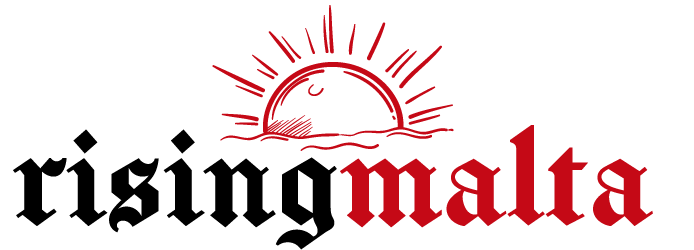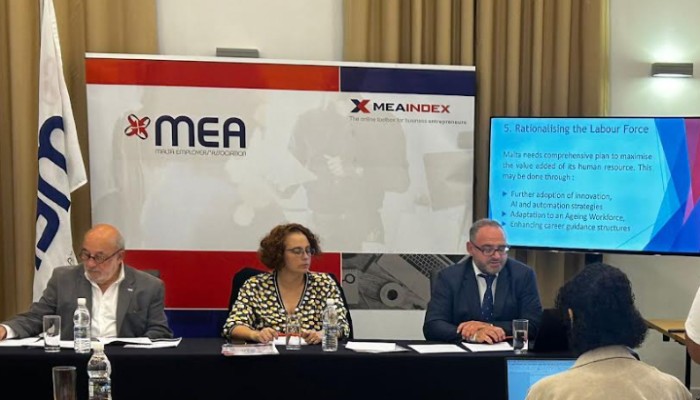
Call for Fiscal Responsibility, Oversight, Accountability, Prioritization, and Long-Term Planning in the Use of Public Funds
Staff Report , Published: September 17, 2024, 2:09 pm

As we approach the forthcoming Budget, the Malta Employers' Association (MEA) stresses the importance of reflecting on the fundamental purpose of this financial process: to ensure the prudent use of public funds contributed by taxpayers for the benefit of the entire nation. Unfortunately, numerous scandals, now under judicial review, have undermined public trust in our institutions, the rule of law, and fiscal integrity, especially concerning the misuse of taxpayers' money.
The mismanagement of public funds has adversely affected critical areas such as healthcare, electricity infrastructure, sewage systems, research and innovation (R&I) projects at the University, and social benefits. Ironically, private employers are often burdened with costs that should fall under the State’s responsibility, including maternity leave entitlements funded through private contributions, the first three days of sick leave per episode, penalties for not employing persons with disabilities, and future plans to fund family-friendly measures.
MEA Proposals for the 2025 Budget:
Economic and Social Model Shift: Malta’s current approach, focused on maximizing numbers without adequate planning, has deteriorated citizens' quality of life, dampened worker motivation, and worsened talent shortages, leading to an outflow of people. The economy risks collapsing under this unsustainable model. The forthcoming Budget must steer Malta towards reconfiguring priorities, emphasizing quality and innovation over sheer quantity.
Focus on Economic Transformation: To align with Malta’s physical and demographic characteristics, a serious and responsible dialogue among social partners is essential. The future prosperity of Malta should focus on export-led growth that is both economically and environmentally sustainable. Incentives should target sectors that contribute to high-value products and services.
Rationalizing the Labour Force: A comprehensive plan to maximize human resource value is needed. This includes adopting new technologies like AI and automation, strengthening career guidance structures, and adapting to an aging workforce. Measures should address fiscal anomalies, provide incentives to adapt work environments, and enhance education and training opportunities.
Strategic Focus on Capital Expenditure: Long-term capital expenditure should prioritize essential infrastructure projects such as energy supply and distribution, water resource management, intelligent traffic management systems, and upgrading drainage systems. Construction efforts should focus on strengthening infrastructure rather than speculative projects.
Taxation: While reducing tax burdens on middle-income workers has benefits, it also poses risks. Increased disposable incomes might lead to higher consumer spending in an already overheated economy, potentially causing inflation and reduced tax revenues. The MEA recommends a scenario-based study of projected tax revenues from adjusted tax bands and transparency about the objectives behind these tax revisions.
Tourism and Catering Industry: The tourism industry requires strategic direction. Inadequate long-term planning has diminished Malta’s attractiveness as a tourist destination. The MEA suggests considering a lower VAT rate on catering services to enhance competitiveness and compliance.
Maritime and Agricultural Sectors: The MEA calls for a National Maritime Transport Strategy to fully harness the blue economy's potential. This strategy should include re-establishing a national authority responsible for maritime affairs, with efficient internal structures and a motivated workforce. Additionally, increased resources should be allocated to boost agricultural output and improve Malta’s food security amid the shrinkage of agricultural land due to overdevelopment.
Enhancing Governance and Transparency: To restore public trust, the MEA advocates for improved governance and full disclosure of government contracts, including publishing the names and remuneration of individuals in positions of trust. Reforming political party financing is also necessary to mitigate corruption risks.
Capacity Building for Social Partners: Government support for social dialogue and social partners is essential. Investing in capacity building will enable these organizations to achieve their objectives more effectively and contribute to Malta’s socio-economic development.
Assistance to Private Schools: The collective agreement for state-school teachers will increase private schools' operating costs, which are crucial to Malta’s education infrastructure. The MEA proposes increasing assistance to families who send their children to private schools to help offset the rise in fees.
Conclusion:
The MEA condemns all instances of mismanagement and fraud involving public funds. It is unacceptable that taxpayer money, meant to enhance national competitiveness and improve citizens' lives, is squandered or misappropriated. This situation highlights severe deficiencies in our national structures, oversight, enforcement, accountability, and long-term planning capabilities.
As we approach the 2025 Budget, the MEA calls for: a) Reversing deficiencies in planning and enforcement mechanisms; b) A renewed economic direction focused on smart, environmentally feasible export-led growth emphasizing quality and innovation; c) Urgent reforms to ensure transparency in managing public funds and prioritizing infrastructure and competitiveness-enhancing investments.
The prudent use of taxpayer money is not merely a fiscal responsibility but a moral imperative.